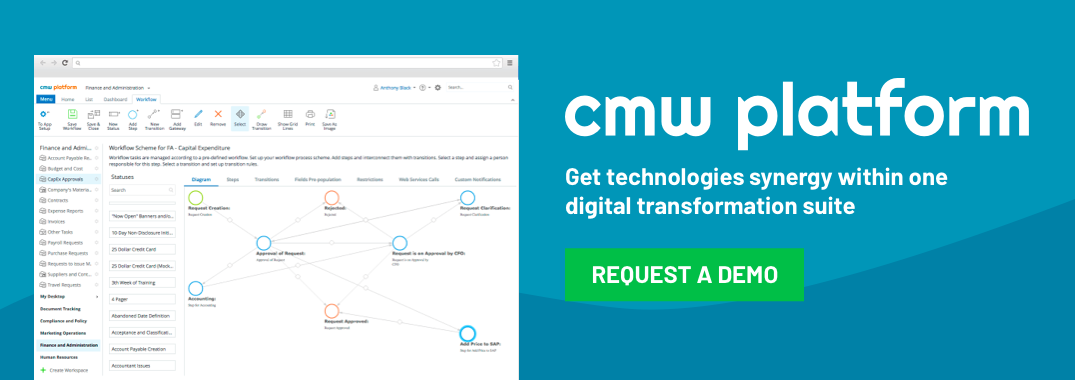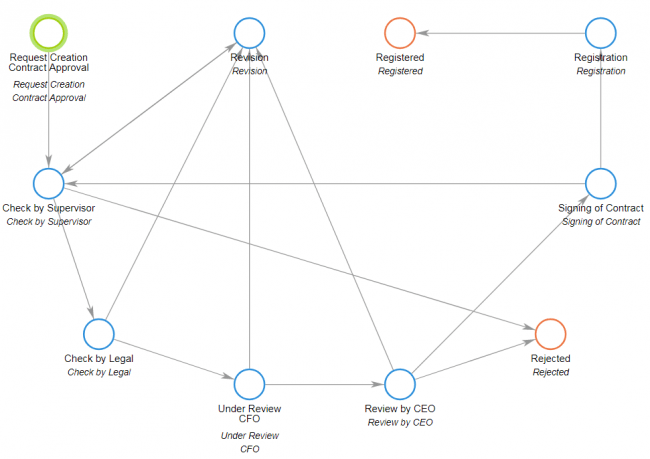Understanding DMS Workflows and Unlocking Their Potential (2024-2025)
Wednesday, December 19, 2018 / Updated: January 17, 2025
The way that we deal with documents is going through a revolutionary change. As businesses transfer even deeper into the virtual realm, the capability to handle and optimize document processes efficiently has now become a critical requirement. Central to these advancements is the DMS workflow. This well-defined framework provides not only effectiveness and compliance but also helps cope with the very competitive environment in the market.
In the event that your firm stores and retrieves significant documents such as invoices, contracts, or compliance documents, taking a step toward greater understanding of document management workflows might just be what you need to achieve an operational breakthrough. This guide will assist you in identifying the most significant components, advantages, and trends that will influence the next generation of document workflows and will give practical recommendations to businesses up to 2024-2025.
Table of Contents
What Is a DMS Workflow?
DMS workflows are defined processes that relates to the design, administration, orchestration, and archiving of documents in a DMS. These automated processes minimize the movement of the documents through its stages, enabling an enhanced performance in activities like approvals, tracking, and compliance to regulations.
For example, imagine uploading a contract into your system. A document upload workflow solution ensures it’s routed to the right team for review, while version control monitors any adjustments. Once approved, it’s securely archived for later retrieval—all without manual micromanagement.
 Are you ready for the end of this type of document management?
Are you ready for the end of this type of document management? 
Key Features of a DMS Workflow:
- Document Creation Workflow:
Automates the drafting, approval, and revision stages for consistent and accurate outputs.
- Document Management Workflow Process:
Oversees the entire lifecycle of a document, from creation to archival.
- Document Control Workflow:
Keeps sensitive documentation secure by tracking changes and restricting access as needed.
- DMS Approval Workflows:
Automates routing for faster approvals while ensuring compliance benchmarks are met.
By centralising these processes, organisations avoid common errors, improve collaboration, and streamline the document pipeline.
Why DMS Workflows Are Essential for Businesses in 2024-2025
Leading enterprises across healthcare, finance, manufacturing, and beyond are adopting document management workflows to address growing complexities in document handling. Ignoring these workflows could lead to inefficiencies, compliance risks, and higher operational costs.
Here’s why these workflows are indispensable:
1. Enhanced Productivity
Automating routine tasks like approvals and sharing allows teams to focus on high-value work. Employees gain seamless access to workflow document management systems, reducing bottlenecks as teams work on the latest document versions in real-time.
2. Improved Compliance
Industries with strict regulations—such as financial institutions and healthcare providers—rely on document control workflows to ensure audit-readiness. Features such as automatic timestamps and detailed version tracking leave no room for compliance lapses.
3. Cost Savings
Switching from paper-based processes to document management workflow solutions reduces printing costs, storage needs, and administrative burdens. The return on investment becomes clearer with each automated process.
4. Scalability
Modern solutions are designed to grow with your organisation. Whether managing 10 or 10,000 documents daily, document workflow management systems adapt to meet evolving demands.
Practical Example:
A manufacturing firm employs a document processing workflow solution to handle purchase orders. Automating this step has cut approval times in half, ensuring parts arrive on schedule without expedited shipping fees or delays.
 Workflow software for effective document management can transform productivity in your organization.
Workflow software for effective document management can transform productivity in your organization. How DMS Workflows Operate
The success of a DMS lies in its ability to guide documents through a structured process. Here’s a simple breakdown of how a workflow for document management systems works:
1. Document Creation and Upload
Using document creation workflow solutions, staff draft and upload documents with the aid of preset templates. This ensures consistency while reducing manual errors.
2. Document Routing and Review
Documents are assigned to stakeholders automatically, thanks to document processing workflows. Notifications and reminders minimise delays, keeping everyone on track.
3. Version Control and Collaboration
Teams work together in real-time using document workflow management software, which ensures everyone accesses the most up-to-date version.
4. Approval Stages
With DMS approval workflows, managers receive documents for final approval, which can be digitally signed and distributed instantly.
5. Secure Archival
Approved documents are encrypted and stored securely within the document workflow system, ready to be retrieved via advanced search tools when needed.
Trends Shaping Document Management in 2024-2025
Technology continues to redefine document workflows. Here are the major trends set to make waves:
1. AI-Enhanced Workflows
AI tools are automating data extraction, error correction, and predictive analytics. For example, an AI-powered document correction workflow solution can flag missing signatures or identify formatting inconsistencies in real time.
2. Seamless Integrations
Document workflows are increasingly interoperable with platforms like SAP, Office 365, and Google Workspace. For instance, a SAP DMS workflow connects financial records directly with procurement systems, eliminating redundancy.
3. Cloud Transformation
The rise of cloud-based document workflow software ensures global teams can collaborate efficiently no matter where they are.
4. Hyperautomation
Merging AI with robotic process automation creates end-to-end automation for workflows—from capturing data to archiving it with minimal human oversight.
Industry Example:
A legal firm transitioning to document management software with workflow integration reduced contract processing times by 60%, enhancing client satisfaction.
 Simplify document tracking, speed up workflows and enable faster decision making.
Simplify document tracking, speed up workflows and enable faster decision making.Finding the Right Workflow Solution
Choosing a workflow document management platform isn’t just about ticking boxes—it’s an investment in your organisation’s future. Here’s what to consider:
- Customisation:
Look for solutions that adapt to sector-specific workflows, like healthcare’s need for patient record handling.
- User-Friendly Interfaces:
Simplicity encourages adoption across departments.
- Scalability:
Ensure the system can handle expanding document volumes.
- Integration Capabilities:
Platforms like CMW Tracker integrate seamlessly with existing tools to avoid disruption.
- Strong Security Protocols:
Features like encryption and granular-level access control are essential.
Recommended Solution: CMW Tracker
CMW Tracker offers an integrated document workflow management software that has a user friendly intuitive interface, along with an automation set of tools. It is the perfect solution for businesses that want to improve their workflow document management systems, whether controlling document generation processes or simplifying the approval process, the extensive capabilities and seamless usability of CMW Tracker has it all.
Key Features:
- Customizable document workflow systems.
- Real-time collaboration and version control.
- Seamless integration with popular enterprise tools.
- Advanced analytics and reporting.
Get started today with a 30-day trial and discover how CMW Tracker can transform your document management and workflow processes.
Final Thoughts
In 2024-2025, the stress on streamlined document management workflows covers all corners more than ever before. Proper strategy and document management systems enhance the business productivity, saves costs and still makes sure compliance to the regulations, which are steadily becoming more and more complicated.
Assuming that your organization is not lagging in deploying a document management workflow solution. New technologies such as Automation, AI, and cloud solutions enable one to enhance your work practices and remain competitive in the market.
Don’t wait—start optimizing your document workflows today!
FAQs
1. What is a DMS workflow?
A DMS workflow refers to the structured process of creating, managing, and tracking documents within a document management system.
2. How do document workflow solutions improve productivity?
They automate repetitive tasks, reduce errors, and enable seamless collaboration, saving time and resources.
3. Can a DMS workflow integrate with other tools?
Yes, modern document management workflows integrate with platforms like SAP, Microsoft Office, and Google Workspace.
4. What industries benefit most from DMS workflows?
Healthcare, finance, manufacturing, legal, and many others benefit from streamlined document workflows.
5. How do I choose the right document workflow software?
Look for features like customization, ease of use, scalability, and integration capabilities.




Posted on: in Process World